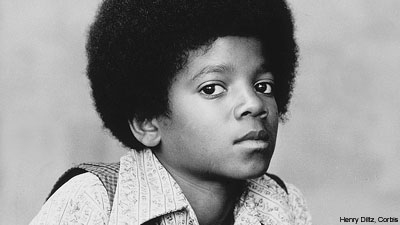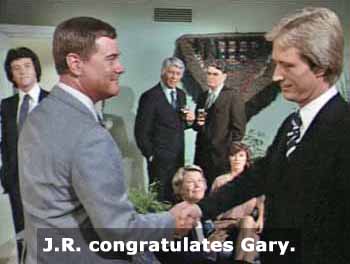podcast 222 – Self-evident truths relevant to Trinity or Incarnation theories – Part 1
Can these trim off the fat of excess speculations?
Can these trim off the fat of excess speculations?
A book review I’ve written of philosophical theologian James Anderson’s Paradox in Christian Theology.
Dr. Lee Irons on his contribution to the new book The Son: Three Views of the Identity of Jesus, interview by Dr. Dale Tuggy for episode 117 of the trinities podcast.
The “word ‘beget’,” he says, “is deprived of its actual meaning.”
McLatchie’s mistake about historical, mainstream Christian theologies.
 I woke up this morning, and realized that there is a problem with how I’ve been defining the concept of a unitarian. In this post, I will attempt a definition of the concept of a trinitarian, after reviewing what is required of a good definition. Next time, I’ll try to define the concept of a unitarian.
I woke up this morning, and realized that there is a problem with how I’ve been defining the concept of a unitarian. In this post, I will attempt a definition of the concept of a trinitarian, after reviewing what is required of a good definition. Next time, I’ll try to define the concept of a unitarian.
According to the textbook I have used for years in my critical thinking class, a good definition should:
What is a trinitarian?
Definition 1: someone who believes in a triune god.
 Prolific blogger (at Triablogue) Steve Hays and I have recently been discussing various things.
Prolific blogger (at Triablogue) Steve Hays and I have recently been discussing various things.
At the end of a recent exchange, I basically said: Dude, I don’t know what you think “the” doctrine of the Trinity is. What, in your view, does it mean to say that God is a Trinity?
He’s now responded here.
In this post, I try to understand just what he’s claiming, in other words, what he takes trinitarianism (rightly understood) to be.
This is a bit risky, because I think he’s confused about the concept of identity, and I’m trying to hear a self-consistent view here.
The first job in critical thinking is carefully listening to what the source at hand is saying. Here I listen carefully, editing out a lot of his methodological musings and terminological quibbles, trying to get to the meat of his view.
I think the meat starts here:Read More »What is the Trinity? A Dialogue with Steve Hays – Part 1
 Philip Clayton teaches theology and philosophy at the Claremont School of theology, and at the Claremont Graduate University.
Philip Clayton teaches theology and philosophy at the Claremont School of theology, and at the Claremont Graduate University.
He publishes a ton, and much of his work is in the science and religion genre. Unlike many authors in that genre, Clayton isn’t a scientist – his training is in theology, religious studies, and philosophy.
He’s also a co-founder of this Big Tent Christianity project, which aims in his words “to foster a radically different understanding of the heart of Christian faith” – different, that is, from the theologically and culturally conservative and liberal camps.
But our question is: Is God a self? What saith Clayton? Check out his interview (blue button), and then click here for my take -> Read More »Is God a Self? Part 3 – Clayton
Last time, I mentioned a well done book by evangelical philosopher Gregg Ten Elshoff on the topic of self-deception and the Christian life. He noted that one may easily have a false belief about what one believes, and he noted that there can be strong social pressures to believe that one has beliefs one doesn’t (and that one lacks beliefs one in fact has). As… Read More »You’re Foolin’ Yourself and You Don’t Believe It – Part 2

Up to this point in Book 3 Richard has told us several things about love (caritas). We have wondered at his saying there isn’t a perfectly good person if he doesn’t love. We have sorted through some necessary conditions for love such that we wonder whether a perfectly good person p must love another person q if p is to be perfectly good. You might say we’ve been contemplating some divine ethics, or aesthetics, or whatever.
In the previous post I suggested how we might interpret what Richard means by saying (two) divine persons are equal and similar to one another, namely the divine persons have the same disposition of love and the same acts of love (see [T4’] and [T5’]). In the next part of Richard’s argument he returns to his metaphysics of the divine substance which he discussed in Books 1 and 2.Read More »Richard of St. Victor 7 – The Same Divine Substance (Scott)
In round 3, Burke comes out swinging and swinging. But how much does he connect? In my judgment, somewhat. Here’s an overview of his case, with some critical comments, and at the end I score the round.
In my judgment, somewhat. Here’s an overview of his case, with some critical comments, and at the end I score the round.
First, Burke argues that Jesus’ messianic roles as atoning sin-offering, priest, redeemer, and Davidic king, do not require him to be divine, and further, that the first and last of these require that he is not God. I take it Burke’s point is that they require Jesus to be a human, and that no human is divine. Flag: In this context, the point is question-begging. Bowman no doubt affirms Chalcedon, according to which Jesus has both a divine and a human nature.
Next, Burke has a nice discussion of the Jewish habit, well attested in the NT and in other ancient writings, of talking about what God has predestined as already existing in heaven. This affects what one considers the natural reading of passages like John 17:5 (NIV) “And now, Father, glorify me in your presence with the glory I had with you before the world began.” Burke nicely sketches the line of thought behind this habit – what is predestined is as good as done, so what is future is moved back, as it were, to the past or present – to a time which is “too late” to avoid. He gives a vivid example from Paul of talking about a future event as present: “And God raised us up with Christ and seated us with him in the heavenly realms in Christ Jesus…” (Eph 2:6, NIV)
What is the significance of this? Read More »SCORING THE BURKE – BOWMAN DEBATE – Burke 3
Dr. James White’s stated reasons for not debating me are based on misunderstanding.
 In this last post in this series, I want to put out a few critical reactions to Baber’s “Neo-Sabellian” Trinity theory.
In this last post in this series, I want to put out a few critical reactions to Baber’s “Neo-Sabellian” Trinity theory.
My thanks to Harriet for this piece and for her interaction with us here.
No doubt, she’ll argue back; and she will probably say something about how her views have changed since she wrote this piece.
So, in no particular order:

In De Trinitate Book 3.7 Richard summarizes some of what comes beforehand. We have learned that supreme goodness requires supreme love (i.e. supreme love is a necessary condition for supreme goodness), and that supreme love requires more than one person. If supreme love were only self-love, then the total state of affairs “one divine person has self-love” is not as perfect a state of affairs as another total state of affairs, namely “two persons have self-love, and each loves the other person.” Thus,
If there is supreme love, then there is a plurality of persons.
Likewise, Henry infers from what he takes to be the nature of supreme love to entail the equality of the persons in question.
If there is supreme love, then there is an equality of persons.
Below I try to explain just what all this means.
Read More »Richard of St. Victor 6 – Supreme Love Only Among Equals, Again (Scott)
Do Christians and Muslims worship the same god? Many are inclined to think that trinitarian Christian and Islamic theologies are just too different for the two groups to even be referring to the same being. But as many have pointed out, be careful with that argument! For one thing, it may give you the unwanted conclusion that various Christian groups aren’t talking about the same god.… Read More »the “same god” controversy and Christian commitment – Part 2
This is a guest post by Mr. Mario Stratta, a frequent commenter on this blog. He works in electronic engineering in Italy, and blogs on theological topics as “Miguel de Servet” at beliefnet. – Dale In the OT we find an obscure reference to the “eternal arms” of God: “The everlasting God is a refuge, and underneath [you] are [his] eternal arms …” (Deut 33:27)… Read More »Word and Spirit: the “Everlasting Arms” of God

Thanks to all you excellent commenters! I can’t always keep up.
I see my friend philosophy professor Harriet Baber has been on there asking some provocative questions like some kind of Socratic gadfly. 🙂 I thought they deserved a post. The quotes here are from her comments.
WHAT pre-existed: the 2nd Person of the Trinity or Christ?
Orthodox / catholic-kosher answer: both. The 2nd person of the Trinity is assumed to be personally identical to (and so, identical to) the man Jesus.
What if I hold that the Trinitarian Person was pre-existent but became a human at some time in the late 1st century BC so that, in effect, Christ is a proper temporal part of the 2nd Person of the Trinity. Does this make me an adoptionist?
To all the non-philosophers out there; she is applying the recent metphysical doctrine of temporal parts here, thinking of, e.g. a self as extended across or spread out over time, rather than lasting (entire) though time. In current day metaphysicians’ lingo, people perdure rather than endure. So in this case the one Christ would be that whole four-dimensional, event-like thing, with the early part being the pre-human logos and the latter part being the human Jesus – but as I’m using the terms here (this is tricky – there are no standard terms here) the logos and Jesus would be temporal parts of the one Christ.
I don’t know, Harriet, whether or not this makes you an adoptionist; I suggest we lay aside Read More »Metatheology with Baber
In this post, I’ll take a crack at summarizing a lengthy salvo against Trinity monotheism launched by Daniel Howard-Snyder. Dan is well known and respected for his work on the problem of evil and in theory of knowledge. He has a hard-hitting and thorough style, very Alstonian (which is no accident). Generally, Dan is a nice guy, with a good sense of humor to boot.… Read More »Trinity Monotheism part 6: Attack of the Dan
Steve Hays has posted on my critiques of purely philosophical arguments from theism to the Trinity.